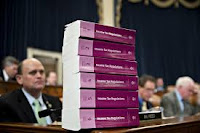TIGTA issued a report on September 25, 2024, stating that over the last decade, the IRS has faced a decline in staffing levels which has affected its ability to fulfill its mission.
TIGTA discussed that the IRS has been granted multiple authorities to expedite hiring and fill job vacancies when a critical hiring need or a severe shortage of candidates exists. However, from October 1, 2021, to September 30, 2023, the IRS processed nearly 53,000 new hires, despite delays in the hiring process which resulted from workload constraints and miscommunication, security checks exceeding their targeted completion time, and limitations in the IRS’s hiring management system.
TIGTA also found that nearly 19,000 of these new hires exceeded the Office of Personnel Management’s 80-calendar day target hiring time.
So while the IRS has been hampered from auditing noncompliant US taxpayers, they appear to be well underway toward staffing up and obtaining sufficient Personnel to complete the part of its purpose of ensuring the integrity of the tax system.
The IRS conducts audits primarily to ensure compliance with tax laws and to verify that taxpayers have reported their income and deductions accurately. Audits serve several purposes:
Ensuring Accuracy: Audits help verify that taxpayers have reported their income correctly and claimed only the deductions and credits they are entitled to under the law.
Detecting Errors: They help identify errors, discrepancies, or inconsistencies in tax returns that may result in underpayment or overpayment of taxes.
Preventing Fraud: Audits help detect and prevent fraudulent activities, such as underreporting income or claiming false deductions.
Educational Purposes: They can also serve an educational role, helping taxpayers understand their tax obligations better and how to comply with tax laws.
Maintaining Public Confidence: By enforcing tax laws fairly and consistently, audits help maintain public confidence in the tax system.
Overall, audits are a way for the IRS to ensure that taxpayers are paying their fair share of taxes according to the law.
Are Your US Taxes In Order?
www.TaxAid.com or www.OVDPLaw.com
or Toll Free at 888 8TAXAID (888-882-9243)



















